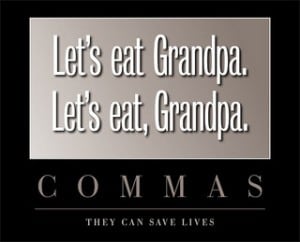Before I became a Jesuit, I worked as a document editor in the federal government. Put differently, I obsessed (professionally) over grammar and punctuation. You may think that sounds like the most boring job ever. I say you have never felt the joy of a properly used semicolon.
Anyway, one of the perks (?) of having strongly-held beliefs about split infinitives and the em dash is that friends will sometimes forward English language news. For instance, someone sent me this post in the Chronicle of Higher Education about the evolving use of the word “slash.” You may recognize it as a verb (“slash the federal budget”) or even a quasi-adjective (e.g., “it’s a slasher flick”). Also, there’s the fact that,
Lots of us use the slash (/) in writing to capture two or more descriptions…with a meaning something like “or,” “and,” or “and/or”—e.g., “my sister/best friend” or “request/require.” The slash typically separates two things that are the same part of speech or parallel grammatically; and we can say that slash out loud if needed: “my sister slash best friend.”
But “slash” is also increasingly used to link two ideas with a meaning like “and also” or “following up”:
“I really love that hot dog place on Liberty Street. Slash can we go there tomorrow?”
“I’ll let you know though. Slash I don’t know when I’m going to be home tonight”
“So what’ve you been up to? slash should we be skyping?”
A fair number of grammar and punctuation purists may see this development as a sure sign of (i) the impending collapse of the English language, (ii) the impending Apocalypse, or (iii) all of the above. (If you think I’m joking, you missed the hubbub when “OMG” was added to the OED.) They are probably overreacting. Not only does this underscore that language is fluid and evolving even as we use it, but it opens up the possibility that we might use other punctuation in the same way. No doubt this is hopeful news for the long-neglected ampersand (&).
